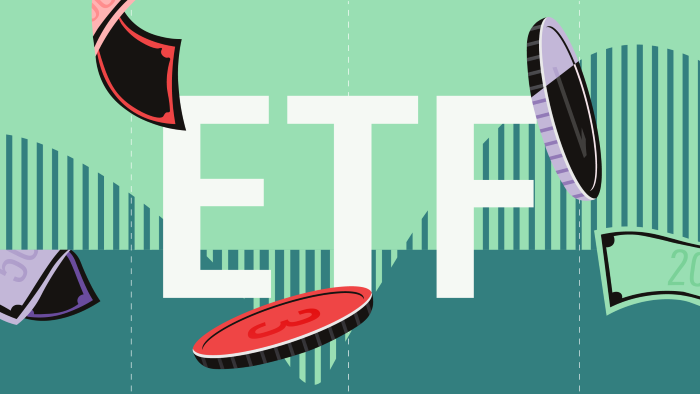
Earlier this month, Vanguard added gun stocks into its biggest sustainable exchange traded fund.
“The Vanguard issue - precipitated from an error on the part of the index provider (FTSE Russell) - wasn’t immediately spotted by the portfolio management team at Vanguard,” says Ben Johnson, Morningstar’s director of passive funds research. “As a result, their environmental, social and governance index fund temporarily owned small positions in stocks that come far from meeting their eligibility criteria.”
Not good.
ESG investing is new - it was only 15 years ago that the UN impact study “Who Cares Wins” helped coin the ESG label - and it isn’t simple. “Responsible investing is a spectrum,” says John Bai, Chief Investment Officer at NEI Investments. And responsible investors should know that there is more to it than buying a product with an ‘ESG’ label.
“By definition ESG investing requires qualitative judgment, as it is an inherently subjective exercise,” agrees Johnson, “You see this evidenced in the spread of ratings across the various purveyors of ESG ratings—there’s little agreement among them.”
It’s hard to be effective when you aim to be efficient in such a complex and subjective space. Cracks will emerge.
Commitment concerns
“There is really no excuse for Vanguard or for FTSE Russell,” says Jon Hale, Morningstar’s global head of sustainability research. “ESG investors shouldn’t assume that Vanguard, just because it’s Vanguard, knows what it’s doing when it comes to sustainable investing,” he says, citing the company’s commitment to ESG being a key cause for concern. “While this particular error was a mistake that was quickly rectified, problems like this seem less likely to occur at firms that have shown a deeper commitment to ESG."
Investors in the ultra-low-cost solution, with management fees a mere 0.12%, might have found comfort in Vanguard’s passive investing prowess, but it doesn’t necessarily mean they should expect ESG expertise.
Investors in passive approaches rely on the subjectivity and qualitative analysis of the ESG space to be baked into the methodology, explains Johnson. And when the methodology is wrong, implementation becomes moot.
And it’s also hard to avoid design errors when the architects often disagree.
Definitions differ
Low-cost product providers use large, outsourced indexes, where constituent companies are allotted an “ESG score”. This score, however, varies, as quantitative approaches rely on data in the world of ESG investing where qualitative opinions – and the relevancy of data – is always changing.
Bai references a media report last year that uncovered wide variances in scores from providers FTSE, Sustainalytics and MSCI, with nearly opposite opinions on the environmental factor for Tesla (TSLA), or significantly different overall views on companies like Berkshire Hathaway (BRK.B) and GE (GE).
“You need an ongoing ability to respond in a timely manner,” says Bai.
“Data protection for a software company might be more important than it is for a mining company,” says Steve Leong, Head of Product for Canada at BlackRock iShares. Bai agrees, “and sometimes you might avoid a polluting manufacturer only to find out that it supplies silicon chips for solar panels.”
What’s it worth to you?
If you’re in it for the growth and don’t want the fees, there’s no shame in taking the cheaper approach with ESG index-tracking ETFs – ESG interest is growing and there is great return potential.
But sometimes paying a little more can pay off. For example, with funds that mix quantitative and qualitative approaches.
“Loss of performance is a cost too,” says Leong. While the iShares equity ESG suite – which tracks an MSCI index - starts with fees at 0.20%, he prefers a blend of efficiency data-based analysis and “a lot of human hours.”
Another example is Desjardins, that offers a line of ‘Responsible Investing’ ETFs that specifically target CO2 emissions, and denies entry to any companies that struggle in even one of the categories. “A company with a very strong E and S but poor G performance could score high on average, but for inclusion in the ETF, it needs to be a top performer in three pillars to be considered,” says Jay Aizanman, Strategic Consultant, Business Development at Desjardins.
What you can do
Hale says it is difficult to keep track of the sometime thousands of holdings to make sure a fund is hewing to its stated intentions. In Morningstar Direct, for example, users can find how much of a fund’s portfolio is exposed to the areas which the Vanguard ETFs intend to exclude.
However, ensuring your investments are actually ‘ESG’ involves picking the right products, portfolio structure, and provider.
For those seeking the efficient route, Leong says pairing an efficient ETF with select stocks that align most with your values, and that you know well, is a good approach.
For investors concerned about the indexing of their ETF products, Aizanmann suggests a little research. “There are many indices that take into account various methodologies in their creation - investors need to understand how they are being constructed and how the ESG principles are being applied to it and whether that is what they are looking for.”
Bai’s boots on the ground dodged a bullet when it uncovered stewardship issues and a high history of dangerous ‘incidents’ logged at BP Energy (BP) and red-listed the stock before it dropped following the disastrous Deepwater Horizon oil spill. Bai also credits an active approach with influencing positive change at companies such as Aritzia around the gender equality of their executive team.
As for picking the right provider, research into the firm’s commitment to ESG is a crucial indicator, says Hale. “Vanguard has run one sustainable fund successfully over time, the Vanguard FTSE Social Index fund, but has not distinguished itself as a leader in the field. It has not been a leader in shareholder engagement around environmental and social issues. The ETFs that it launched recently rely mainly on exclusions rather than also evaluating holdings based on how well they are addressing the material ESG-related challenges facing their business, so the funds are a less comprehensive take on ESG than most alternatives.”
“ESG investors are better off going with open-end funds and ETFs offered by firms that have shown a deeper commitment to the space,” adds Hale.
Canadian funds that own guns
Vista Outdoor Inc.
Sturm Ruger & Co.
American Outdoor Brands

























